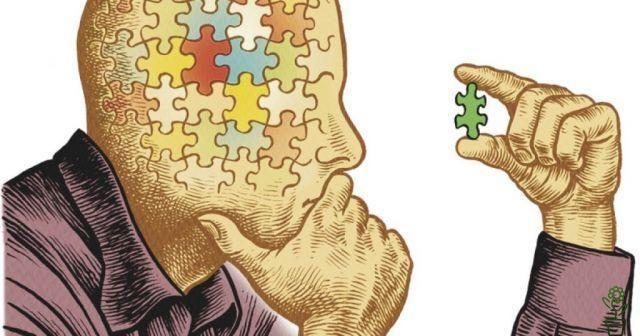
Critical thinking is an essential skill to become a person who thinks independently and does not let himself be recklessly infected by the ideas in vogue or by those that some groups or manipulative people want to impose. Despite this, it is also a rare ability in a society designed to tell us what to think, not to teach us to think.
More than 2.400 years ago, Socrates defended the importance of critical thinking through a series of logical and rational tools. At that time the world did not embrace his idea and did not even understand the need to apply it on a large scale in society. The same happens today. Critical thinking has become something of an oxymoron. It is "valued" but not developed.
In 1997, a group of experts conducted a study for the California Teacher Accreditation Commission to determine the extent to which colleges and universities were developing critical thinking across the curriculum. The research analyzed institutes and universities in the California education system, as well as private universities such as Stanford University.
The researchers found that the majority of teachers (89%) stated that "critical thinking" was vital in their classrooms, but only 19% were able to offer an even moderately acceptable definition of critical thinking. Additionally, most claimed to cultivate critical thinking in students, but when asked to provide examples of critical thinking in their classrooms, very few were able to provide real evidence that they were actually promoting this ability in their students.
The good news is that although school does not increase this cognitive capacity as it should, we can all develop more critical thinking to assume a more reflective, aware and independent posture in front of the world.
Definition of critical thinking: it's not what you think but how you think
Critical thinking is the ability to properly organize, verify and evaluate the information we generate or receive using explicit and consistent criteria. It is the tendency to show a reflective skepticism that allows us to decide for ourselves what to believe or not.
Therefore, it implies being able to interpret data, facts and expressions, as well as analyze ideas, intentions, concepts and arguments to come to a personal conclusion. However, the concept of critical thinking does not only address the outside, it also has a metacognitive component. It involves the ability to think your own thoughts; that is, being aware of biases or cognitive errors in our thought process to correct them.
The essential skills of critical thinking
Critical thinking requires the development of a set of basic skills that become the pillars of autonomous reasoning. These are skills that allow us to think more freely, outside the established canons.
• Open minded. Open-mindedness does not mean accepting anything just because it is a new and different idea, rejecting old ideas, but just being willing to analyze new ideas. It means not closing ourselves off in front of what is different and new, rejecting it only because it does not fit our mental paradigm.
• Intellectual humility. Intellectual humility is the ability to recognize our mistakes, stereotypes and prejudices, realizing that we are not immune from cognitive bias and emotions. It involves being aware that we do not have the absolute truth, always keeping ourselves open to different ideas that can contribute to something or make us grow.
• Doubt. Critical thinking feeds on healthy doubts. It is not about becoming cynical people who do not believe in anything or anyone, doubting even our shadow and rejecting the good intentions and goodness of others, but cultivating a reflective skepticism according to which, we should not believe certain statements all the way through. just because they come from so-called authority figures.
• Intellectual perseverance. To go beyond what is seen and taken for granted, we must be persistent. Critical thinking involves swimming against the tide, so we need to be highly motivated to seek our own truth, even when much of the world is against it. This intellectual perseverance is what will allow us to keep searching and analyzing information until we find an answer that satisfies us.
Examples of critical thinking in everyday life
Critical thinking doesn't just apply to science or philosophy. Critical thinking also plays an essential role in daily life as we make many of the decisions that will determine our destiny. It shapes our beliefs and helps us choose the causes we compromise with and the ones that make no sense to us.
It allows us to clarify what each statement really contains. Critical thinking allows us to question the claims we hear or make, from the simplest such as "the sun is shining today" to the most complex such as "all human beings are equal" or "communists / capitalists are bad". In this way critical thinking prevents us from falling into the trap of slogans devoid of cultural, generational or other meaning or stereotypes.
Critical thinking is also essential to grow as a person because it allows us to look within. This is what allows us to ask ourselves: Did I do my best? Did I behave logically? If it happened again, would I behave differently? Did I act according to my values or did I let myself be carried away by the group? Have I been a victim of my stereotypes and prejudices? Did I rush to make the decision?
This type of thinking, in short, allows us to develop a critical view from a more open and reflective attitude, to ensure that we make our decisions as little influenced as possible by the opinions, judgments and pressures of others.


























